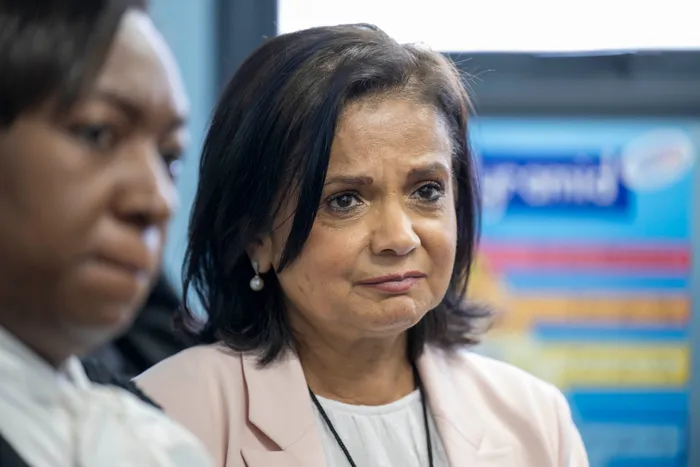NPA's alleged corruption prompts calls for urgent inquiry into police arrest warrants

The National Prosecuting Authority under fire over allegations of obstructing justice in high-profile criminal syndicate cases
Image: Henk Kruger
The National Prosecuting Authority (NPA) finds itself under intense scrutiny following recent allegations that some prosecutors may be obstructing justice by refusing to sign warrants of arrest for top police officers, officials, and politicians linked to a sprawling drug syndicate involved in murders of celebrities, political killings, and other high-profile crimes.
The controversy erupted earlier this week when KwaZulu-Natal Police General Commissioner Nhlanhla Mkhwanazi publicly accused elements within the NPA of aiding criminal suspects by refusing to process warrants, thus shielding influential figures from arrest.
Mkhwanazi alleged that certain prosecutors deliberately withhold warrants, potentially allowing criminal networks and corrupt officials to operate with impunity.
In response to these explosive claims, IOL approached the NPA to clarify how many arrest warrants are pending nationwide and awaiting authorisation.
The inquiry also questioned whether South Africans can continue to trust an institution accused of protecting the individuals it prosecutes.
On Tuesday, NPA spokesperson Mthunzi Mhaga refused to disclose the pending warrants, citing the need for patience as President Cyril Ramaphosa’s administration addresses the matter.
“President Ramaphosa has spoken on this issue, and it would be appropriate to allow him the necessary space and time to deal with it,” Mhaga stated.
He emphasised the NPA’s “zero tolerance” stance on corruption, assuring the public that any confirmed misconduct would be met with decisive action.
However, critics argue that such vague responses only deepen public mistrust.
Law expert Francois Botes emphasised the NPA's constitutional and statutory obligations, highlighting that the agency must actively pursue justice in accordance with criminal procedure law.
The NPA is responsible for ensuring that suspects are brought before court promptly, with warrants properly signed and executed,” Botes explained.
“Any failure to do so undermines the rule of law and the entire criminal justice system.”
The allegations include claims that some prosecutors are intentionally blocking warrants to protect influential individuals linked to organised crime, including drug cartels responsible for violence and political killings.
Such accusations threaten to expose deep-rooted systemic failures within South Africa’s criminal justice apparatus.
Botes also points to recent high-profile failures within the police and judiciary, raising concerns about the entire system's integrity.
As calls intensify for an independent commission of inquiry, with many arguing that only a comprehensive investigation can restore public confidence,
Legal analyst Botes advocates for a swift, transparent investigation led by a commission of inquiry, appointed by the President and presided over by seasoned judges or retired legal experts.
“A dedicated commission should collate all evidence, conduct interviews, and produce a clear report on the scope of these allegations,” he said.
“This is vital to prevent further erosion of public trust and to uphold the rule of law.”
Botes warned that if the criminal justice system continues to be hampered by alleged misconduct and interference, it risks collapse, allowing criminal syndicates to operate unchecked and justice to become a mere illusion.
He added that the unfolding controversy underscores urgent questions about accountability at the highest levels of law enforcement and government.
IOL Politics
Related Topics: